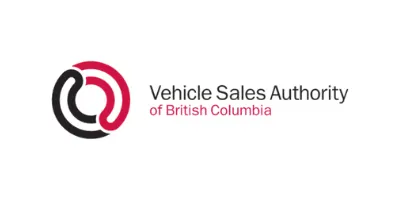
The dealer told me the used car had never been in an accident. I found out later it had been. Can I do something?
You bought a used car two weeks ago. It's already broken down twice. Your mechanic advises the engine now needs rebuilding or replacing. What can you do? Your legal rights and options vary depending on many factors, including who you bought the car from. Learn where you stand if you bought from a car dealer — whose business is selling vehicles. (If you bought the car privately, see this page.)
What you should know
When you buy a used car, you’re out of luck if any of the following apply:
You’re just unhappy with how much you paid. In BC, there’s no cooling-off period once you’ve signed the purchase agreement to buy a used vehicle. This means you won’t be able to cancel just because you changed your mind or because your situation has changed.
You inspected the vehicle and should have spotted the problem — for example, the car shuddered during the test drive.
You were told about the problem when you bought the vehicle and someone fully explained what it meant.
You caused the problem.
When you can back out of the agreement
In BC, there’s no general legal right to return a vehicle once you’ve taken possession of it. But if there’s something wrong with the vehicle, or with the way in which it was sold to you, you may be able to cancel the agreement. Read on to learn more.
When you buy a used vehicle from a car dealer, certain conditions are implied under the law. The vehicle must be:
fit for the purpose you bought it for,
of merchantable quality,
durable for a reasonable period of time, and
as described by the dealer.
These conditions are sometimes referred to as the legal warranty. They are established by this law. They apply whether the dealer mentions them or not. They are in addition to any warranty the dealer or manufacturer provide.
Any attempt to waive the legal warranty must be clearly done
When you buy a used vehicle, you can agree to waive (give up) these conditions. If a car dealer attempts to have you waive the conditions, it must be in clear and unambiguous language.
"Fit for the purpose," "merchantable quality," "reasonably durable.” What do these conditions mean?
What does “fit for the purpose” mean?
A used vehicle is fit for the purpose if it is in roadworthy condition and can be safely driven. It doesn’t have to be in perfect shape.
The term also applies if you buy a vehicle based on the dealer’s advice that it’s suitable for a particular use. For example, a dealer who suggests you buy a specific vehicle for hauling a trailer is promising that the vehicle will work for that job.
What does “merchantable” quality mean?
Merchantable means usable condition, not perfect condition. In other words, it runs. If the car breaks down some time after the sale, that doesn’t prove the seller breached the merchantable quality condition.
What does “reasonably durable” mean?
In the case of a used vehicle, not all that much. A used vehicle isn’t expected to last as long as a new one. What’s a “reasonable” time depends on many factors, including:
the age and condition of the vehicle
the price paid for it
the nature of the problem
the discoverability of the problem
the use of the vehicle after the purchase
If the engine fails completely a week after the purchase, while you’re driving it normally, that may very likely be a breach of the condition of durability, as we explain here. But not necessarily. For example, in one case an eight-year-old car with 140,000 kms, bought for $5,700, was found to be durable for a reasonable period of time even though its engine failed after one month of normal driving.
As vehicles age, they have more problems
The older a vehicle is and the more kilometres it has travelled, the more likely something will break down in the normal course of driving. Undetected problems that arise from the age, and regular wear and tear, of a used vehicle will not result in a breach of the implied warranty of durability.
What does “as described” mean?
The vehicle must match the dealer’s advertising, the description of the vehicle in the purchase agreement, and any statements or representations made by the dealer at or before the time of the sale.
For example, if the dealer’s advertisement says the vehicle has all-wheel drive, when in fact it doesn’t, the vehicle doesn’t match the description. So the dealer is in breach of the legal warranty to provide the vehicle as described.
In addition to the legal warranty, you’re protected from any misrepresentations about the vehicle. That is, the dealer can’t tell you something about the vehicle that isn't true. This applies to their advertising and any statements they make at or before the time of the sale. For example, if you ask the dealer if the vehicle has been in an accident, and they say no, and it turns out the answer is yes, they have misrepresented the vehicle.
In order to show misrepresentation, you need to show:
the dealer made a representation that was untrue or misleading,
they knew — or should have known — the representation was untrue or misleading, and
you relied on the misrepresentation in buying the vehicle.
In showing the dealer should have known their representation was untrue or misleading, you could point out that:
they were reckless in making the representation — that is, they made it without knowing if it was true or false, or
they failed to use reasonable care to ensure the representation was accurate and not untrue or misleading.
Where a seller claims ignorance
It doesn’t cut it for a seller to simply say, “Hey, I didn’t know.” If they should have known something they said about the vehicle was untrue or misleading, that can be enough for it to be misrepresentation.
“The Mini Cooper was nice, but I wanted to sleep on it. It was my first car, and I wanted to be sure it was the right one. But the salesperson insisted the discounted price would expire at midnight. So I signed the agreement. Two weeks later, I saw the dealer advertising the same discounted price on its website. The salesperson had pressured me into buying using an unfair practice, telling me I was getting a special, time-limited price when that wasn't true. Thankfully, I learned I was entitled to return the Mini and get out of the agreement.”
– Gabriela, Vancouver, BC

Under BC law, dealers aren’t allowed to use unfair practices to convince you to buy a vehicle. Unfair practices include misleading statements made, verbally or in writing, or any conduct that could deceive you.
For example, dealers must not:
tell you the vehicle is of better quality than it really is
tell you the vehicle is only available for a limited time if that’s not true
tell you you’re getting a special price or benefit when they’re really just offering the same thing you can get elsewhere
Another type of unfair practice is when a dealer does something unconscionable. An example is taking advantage of a vulnerability — like a language gap — that limits your ability to protect your own interests.
If the dealer does something unconscionable, you’re no longer bound by any agreement you signed.
BC law requires a car dealer tell you in writing a number of things about the vehicle, including:
The car's odometer reading at the time of the sale, and whether it accurately records the true distance travelled by the vehicle.
Whether the vehicle has ever had damage that cost over $2,000 to repair.
Whether the vehicle is from out of British Columbia.
Whether the vehicle has ever been used as a taxi, police car, emergency vehicle, a lease vehicle, or a rental vehicle, or in organized racing.
Everything about the cost of buying the vehicle, including any dealer fees, documentation and administrative fees, licence and insurance fees (separate from ICBC fees), the interest costs if you’re financing the vehicle, the cost of necessary repairs, the cost of any options you choose, and the total cost.
As well, a dealer must guarantee that the vehicle is free of liens. A lien is a legal claim made on someone else's property to make sure they pay a debt. For example, a bank that lends money to help someone buy a car may place a lien on the car in case the owner fails to repay the loan. If the owner doesn’t repay the loan, the car can be taken as payment.
If a car dealer has breached the legal warranty or misrepresented the vehicle, you have options:
You can ask for the dealer to pay for any repairs. You can either take the vehicle back to the dealer to have them do the repair or have the repair done by a third party and ask the dealer to foot the bill. (Bear in mind you won’t be able to ask for a repair if it’ll cost more than you paid for the vehicle.)
You can cancel the agreement, return the vehicle, and ask for your money back. Act immediately if you want to pursue this option. If you wait, it gets more difficult to prove that a fault is the cause of any problem, and not just normal wear and tear.
You can ask for a discount if you still want the vehicle.
You’re also entitled to other expenses that “directly and naturally result” from any breach of the legal warranty or misrepresentation. For example, if you had to pay for the vehicle to be towed after it broke down, this would be an expense that directly and naturally resulted from the breach of the legal warranty.
Work out the problem
Once you understand your legal rights and options, decide what outcome you’re seeking. Do you want the vehicle repaired? Do you want to return the vehicle and get a refund? Is either outcome acceptable?
When you’re deciding whether you’d rather get a repair or a refund, think about whether the problem is likely to lead to bigger issues.
If the problem doesn’t need fixing (for example, there’s a problem with a feature you don’t use, say the air conditioning), you might want to ask the dealer for a discount instead.
Contact the dealer as soon as you notice the issue. Ask to speak to customer service or someone with authority, such as a manager or owner.
Clearly explain your problem. Let them know you understand what you’re entitled to. Let them know the outcome you’re seeking.
Depending on the situation, you might say something like this:
“Under the Sale of Goods Act, this vehicle should be fit for the purpose, be of merchantable quality, last for a reasonable period of time, and be as described. My legal rights have been breached because the vehicle you sold me doesn’t meet these conditions. I would like you to put this right by giving me a refund or repairing the vehicle at your cost.”
Take time to think about any offers before accepting or rejecting them.
If there are discussions about getting the vehicle repaired, consider getting three quotes for the repair work. This may make you feel more comfortable than just letting the dealer choose someone.
Keep a record of your conversations and correspondence. Make sure to get any oral agreements in writing — including when you can expect the vehicle to be ready if you’re asking for a repair, and whether they’ll offer you a courtesy car in the meantime (they don’t have to do this, but you could ask).
If discussing the situation with the dealer doesn’t resolve the problem, the next step is to send a complaint letter to the dealer. We offer a tool you can use to help you build your letter. It includes legal terminology and may help the dealer realize you know your rights. It's also available as a template letter you can download.
Keep a copy of the letter for yourself. If you can, send the original by registered mail or courier. That way you’ll have proof the dealer got it.
If the letter doesn’t resolve the problem, ask the dealer whether they’d consider an alternative dispute resolution scheme. This is a way of solving disagreements without going to court. A third party will help you and the dealer try to reach a solution.
An example is the Canadian Motor Vehicle Arbitration Plan (CAMVAP). If your vehicle was made in the last four years, you may be eligible for this free program. It can help you resolve disputes with automobile manufacturers about vehicle defects or a manufacturer’s warranty.
Most vehicles purchased or leased in Canada are covered by the program; here is a list of participating manufacturers.
If your dispute qualifies for the program, you and the manufacturer would make presentations to an arbitrator who then makes a decision. The arbitrator can order the manufacturer to repair the vehicle, reimburse you for repairs, or buy back the vehicle from you.
If the seller doesn’t respond to your inquiry about using alternative dispute resolution, or they say no, keep a record of the fact that you asked them (and the date). This information will be helpful if you end up in court.
When buying a used vehicle from a car dealer, one option to explore is filing a complaint with the Vehicle Sales Authority of BC. The VSA licenses and regulates car dealers in BC.
Types of complaints the VSA handles
The VSA investigates complaints where the vehicle was bought for personal use. Their ability to investigate is also limited to certain types of complaints. For example, they will investigate where:
the dealer’s conduct was deceptive or unconscionable
the dealer failed to provide required disclosures
the dealer is alleged to have committed odometer fraud
The VSA will not investigate complaints about:
the quality of a vehicle after it has been purchased, such as mechanical parts failing — unless specific representations were made
dealership service standards, such as rude or slow communications and repair services
To learn more about the kinds of complaints that have been resolved by the Vehicle Sales Authority, you can search decisions made by the VSA.
How to make a complaint
To file a complaint with the VSA, complete their consumer complaint form.
If your complaint is one the VSA has authority to deal with, they’ll send your complaint to the dealer. The dealer has 10 business days to respond. The VSA will share the dealer’s response with you.
The VSA may schedule a hearing to resolve the complaint, and will make a written decision on your complaint.
If you bought from a dealer, you can explore filing a compensation fund claim. The Vehicle Sales Authority of BC runs a program that pays back consumers who have lost money because a dealer has gone out of business or failed to meet certain legal obligations. Examples of what types of losses are covered by the compensation fund:
The dealer refuses to deliver the vehicle you agreed to buy and the dealer has no legal right to keep the money you paid.
There was an unpaid lien on the vehicle you bought and you have to pay to clear the title of the vehicle.
You bought an extended warranty from the dealer but are later unable to use it because the dealer went out of business.
To file a compensation fund claim, you must first complete a demand to motor dealer to officially demand that the car dealer return the vehicle or money that is the subject of your dispute. The dealer has 30 days from the date of your demand to respond.
The next step is to complete and sign the claim application form.
Claims are considered by the Motor Dealer Customer Compensation Fund Board. They may schedule a hearing to consider the claim, and will make a written decision.
Another option to consider is telling your story on social media. Be factual and truthful about what happened — using foul or insulting language may work against you.
Social pressure is powerful. The dealer may be eager to make things right to prove they’re good corporate citizens.
If you still can’t solve the problem with the above steps, your last resort may be legal action. Depending on the situation, you can consider suing the dealer for breach of contract (pointing to the legal warranty) or misrepresentation.
If your claim is for less than $5,000, you can bring it to the Civil Resolution Tribunal. This is an online system designed to be used without the help of a lawyer.
If your claim is for less than $35,000, you can sue in small claims court. It’s faster and less complicated than suing in the British Columbia Supreme Court. You must bring your claim in Supreme Court if you're seeking over $35,000.
If you decide to sue, note that there are time limitations on filing lawsuits. There are steps you can take to extend these time limits and preserve your rights.
A lawyer can explain your options, and help you decide on the best course of action. If you don’t have a lawyer, there are options for free or low-cost legal help.
A faster, cheaper option than court
For claims of under $5,000, you can apply to work out your dispute with the Civil Resolution Tribunal. As a tribunal, it's like a court, but less formal. It's entirely online, and designed to be used without a lawyer.
Common questions
No. In BC, when you agree to buy a used vehicle, there’s no general legal right to cancel within a certain time period. But you still have legal options if, for example, the legal warranty has been breached or the dealer misrepresents the vehicle. See what you should know, above.
Canada doesn’t have “lemon laws” for faulty vehicles the way the United States has. Many US states have laws that give buyers legal options if they purchase a vehicle that later turns out to be substantially defective, or a “lemon.” However, the legal warranty explained above is Canada’s key law that protects buyers who have problems with defective vehicles they’ve bought.
If an odometer is altered, disconnected, or replaced in order to mislead a buyer about the vehicle’s mileage, this is called odometer fraud. It’s a criminal offence. If a car dealer is found guilty of odometer fraud, they can also have their licence suspended or cancelled. It can also strengthen a claim that the dealer misrepresented the vehicle.
Note that it isn’t illegal to replace a damaged odometer. However, the reading needs to be recorded before the odometer is replaced or repaired.
If you think a dealer has rolled back the odometer, you can file a complaint with the Vehicle Sales Authority of BC. For details, see above under work out the problem.
When you bought the used vehicle, if you purchased a dealer’s warranty or the vehicle was still covered under the manufacturer’s warranty, you may be able to claim on that to get any problems fixed. In either case, the dealer’s or manufacturer’s warranty doesn’t affect your rights under the legal warranty.
You don’t have to accept a second repair if something goes wrong and you’d rather not keep the vehicle. You can ask for your money back if the repair hasn’t solved the problem.
You could also ask for a discount if you still want the vehicle.
Who can help

Vehicle Sales Authority of BC
Oversees retail car sales and helps resolve complaints with licensed car dealers.

Access Pro Bono’s Everyone Legal Clinic
Clinicians provide affordable fixed-fee services on a range of everyday legal problems.

BC Legal Referral Service
Helps you connect with a lawyer, notary or paralegal for a free 15- to 30-minute consult to see if you want to hire them.

BC Legal Directory
Search for a lawyer by community, area of law, or language spoken. From the Canadian Bar Association, BC Branch.

